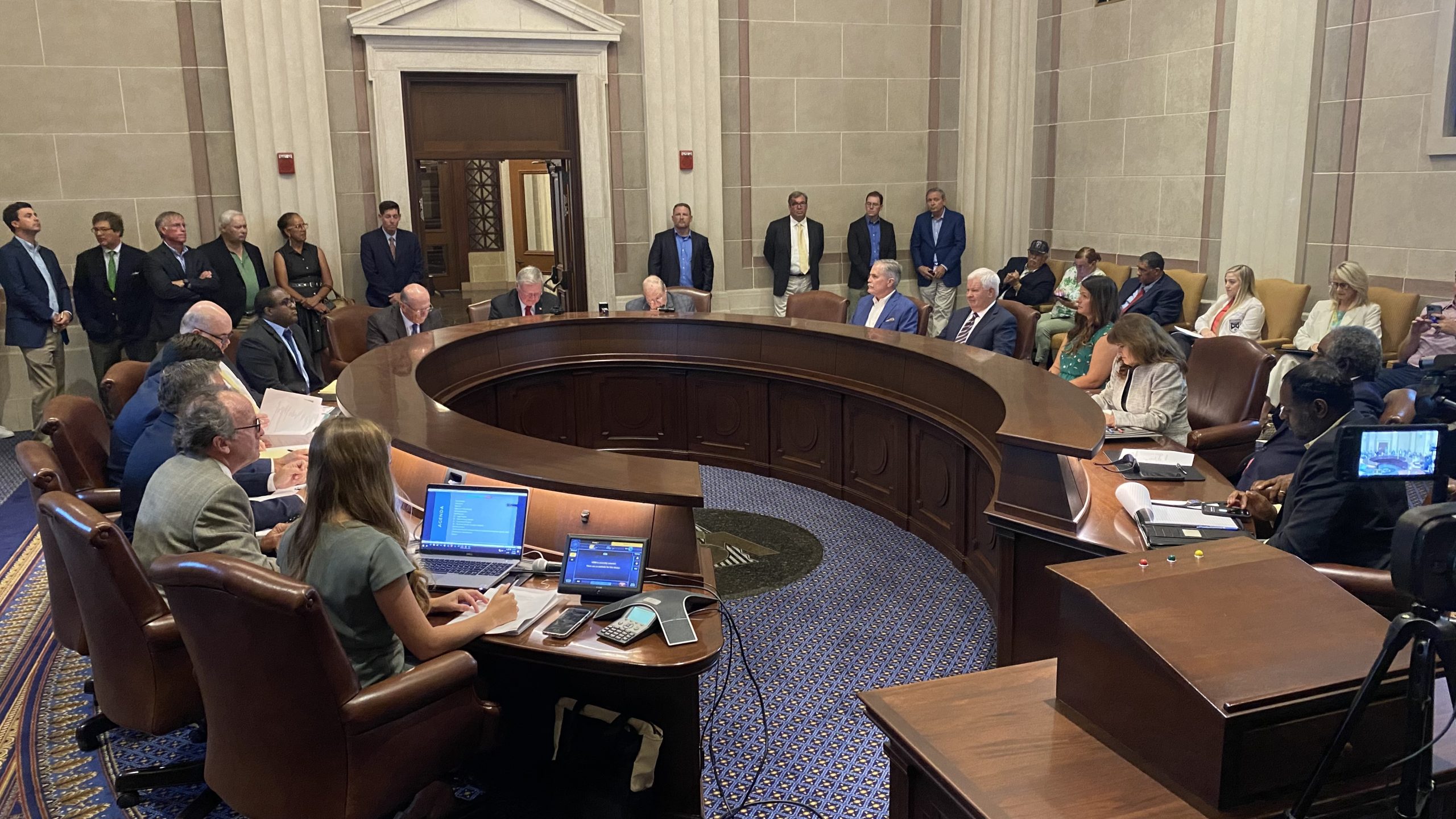A legal question remains as to whether the Alabama Cannabis Commission violated the state’s Open Meetings Act when it met in a private executive session before re-awarding licenses on Aug. 10, after a two-month delay caused in part by significant errors in its scoring process. Montgomery Circuit Judge James Anderson will hear the matter on Wednesday.
Attorneys for Alabama Always, an integrated license applicant, in a Sept. 1 filing asked the court to allow two University of South Alabama employees to submit affidavits at the upcoming preliminary hearing on Wednesday.
Kristin Roberts and Misty Sabol are employees of the University of South Alabama and both appeared at the closed executive session at the Aug. 10 commission meeting. Their affidavits are believed to center on whether AMCC violated the state’s Open Meetings Act during its executive session.
Roberts is the chief financial officer for the University of South Alabama, and Sabol currently serves as a faculty member in the Mitchell College of Business at the university.
Both women were called to testify because USA assisted in tabulating the scores assigned by evaluators for each medical cannabis application under an agreement with the Alabama Medical Cannabis Commission and have direct knowledge of the process and what happened in the commission’s executive session.
Under the Open Meetings Act, executive sessions are allowed only in very limited instances, including when a government entity discusses individuals’ general reputation, character or professional competence.
Roberts and Sabol’s affidavits show that neither they nor any commissioner discussed any applicant’s general reputation and character during the executive session.
During the executive session, Roberts and Sabol gave a presentation to commissioners explaining “how some errors in the tabulation of the scores occurred, how those errors were corrected, and the effect of those corrections on the score calculations,” according to both women’s affidavit.
They also state: “At no point during our presentation did we or any of the Commissioners mention the names of any individuals.” There was, however, one occasion when “The name of one applicant entity was mentioned in a question from one Commissioner who asked why that application was penalized for an exhibit.” Roberts and Sobal concur they didn’t “discuss the general reputation, character, or professional competence of any individuals or entities.”
Previously, in an affidavit, Commission Chair Rex Vaughn said discussions during that presentation “impacted on” the “general reputation, character and professional competence of those involved in calculating and tabulating the scoring provided during the Commission’s meeting.”
However, according to the latest filings, the Open Meetings Act does not allow executive sessions for conversations that merely “impact on” the general reputation and character or professional competence of unspecified people and companies. The Act requires that the executive session be convened “[t]o discuss the general reputation and character…[or] professional competence…of individuals,” Alabama Always’ lawyers argue.
Roberts and Sabol fought a subpoena to testify and were asked to submit affidavits as a compromise. Attorneys for Always Alabama asked Judge Anderson to permit their affidavits instead of in-person testimony.




















































